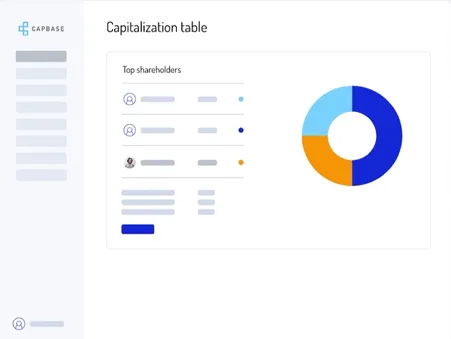
Distribute equity to advisors, co-founders, and employees

Incorporate in Delaware, the state most favored by US and international investors

Raise money from investors with SAFEs and convertible notes

Hire employees, raise funds, and manage your cap table from one powerful dashboard
What is an equity split?
Equity is a type of non-cash payment that represents a share of ownership in a startup. Equity split refers to the initial distribution of shares in a newly formed company, and is typically determined by its founders upon the incorporation of the business. They decide how much equity they should own based on their roles and contributions to the company.

FAQs
In most cases a fair equity split can be determined based on the capabilities, availability, and value that each founder contributes to the company. Try answering questions like: Who is working full-time vs part time? Who is investing their own money? Who is contributing intellectual property?
The fact that 10 million shares have been approved doesn't mean that all or even most of them should go to the founders right away. Most entrepreneurs put shares aside in a pool for employee stock options (typically around 10-20%). A new business needs to keep a pool of equity that can be used to pay key employees and advisors as the business grows.
No matter how much capital you have at the start, 10 million authorized shares is the golden standard for a new startup. Most corporate law firms would recommend this amount of shares to their clients. But the fact that 10 million shares have been approved doesn't mean that all or even most of them should go to the founders right away. Most entrepreneurs put shares aside in a pool for employee stock options. A new business needs to keep a pool of equity that can be used to pay key employees and advisors as the business grows.
Authorized shares are the most shares that can be given out to shareholders legally. The articles of incorporation for the company determine that number. Issued shares are the total number of shares that have actually been given to shareholders.If a company doesn't issue all of its authorized shares, the total number of authorized shares will be higher than the number of issued shares. The number of shares that can be issued can't be more than the number of authorized shares.
Transferring fully vested shares after you’ve decided on the initial split is cumbersome and requires the involvement of a transfer agent and lawyers. However if the shares aren’t fully vested, it is possible to reverse the equity grant. Most startups decide to apply the typical 4-year vesting schedule with 1 year cliff as a measure of safety and to set the right incentives for founders and employees.
When you raise money for your startup in a financing round, you authorize new stock, which increases the total number of outstanding shares. This dilutes the stock for the existing shareholders, but also increases the value of your company; it’s a trade-off.
Related articles
Northern Mariana Islands Business Entity Registration for Delaware Corporations
Is your company doing business in the Northern Mariana Islands? Get an easy-to-follow explanation about what forms you’ll need, information about registration fees, filing deadlines, naming requirements, and more.
 by Capbase Staff • 7 min read
by Capbase Staff • 7 min readAmerican Samoa Business Entity Registration for Delaware Corporations
Is your company doing business in American Samoa? Get an easy-to-follow explanation about what forms you’ll need, information about registration fees, filing deadlines, naming requirements, and more.
 by Capbase Staff • 7 min read
by Capbase Staff • 7 min read7 Types of Startup Investors Who Can Fund Your Company
Find out everything a founder has to know about different types of startup investors, including angels, startup syndicates, VCs, accelerators and more.
 by Michał Kowalewski • 15 min read
by Michał Kowalewski • 15 min read